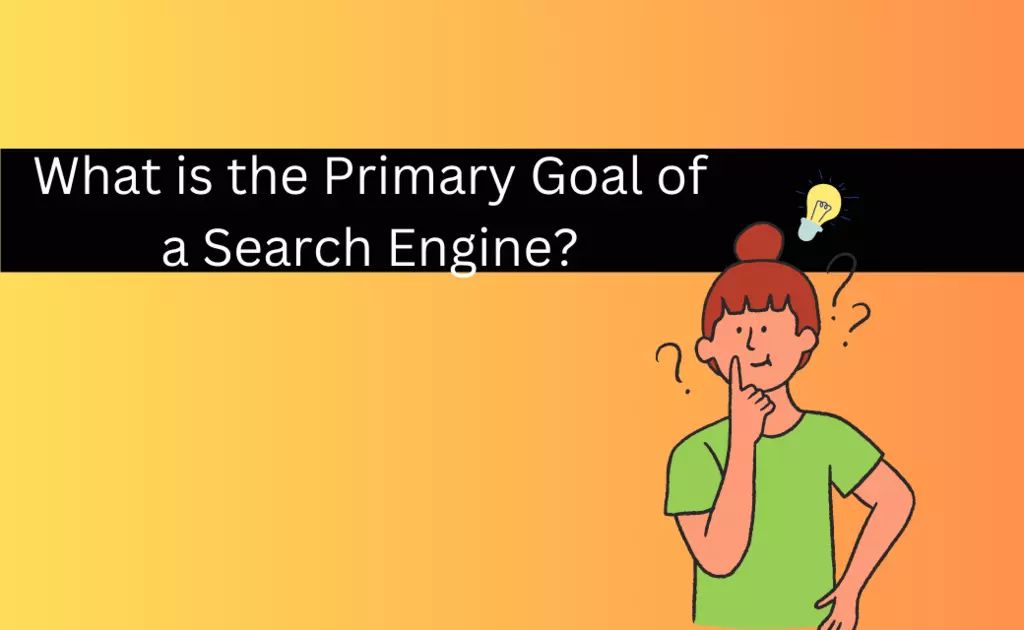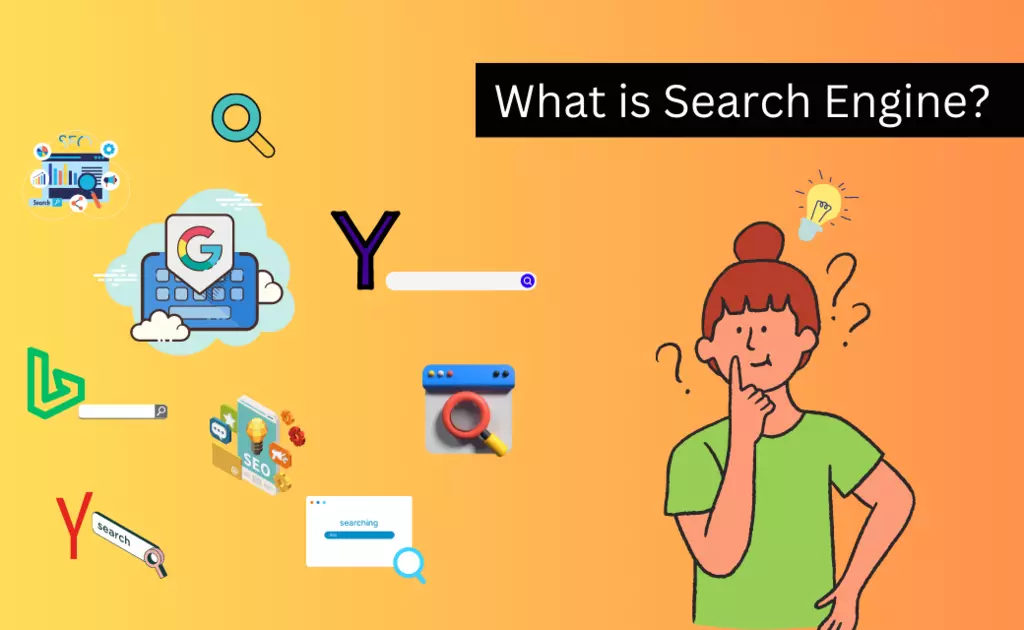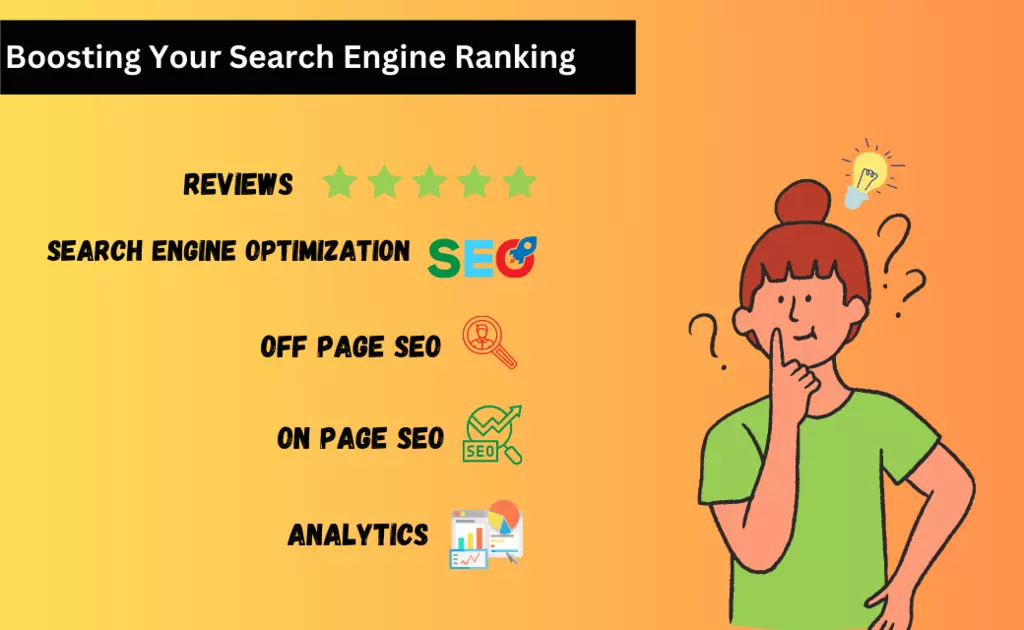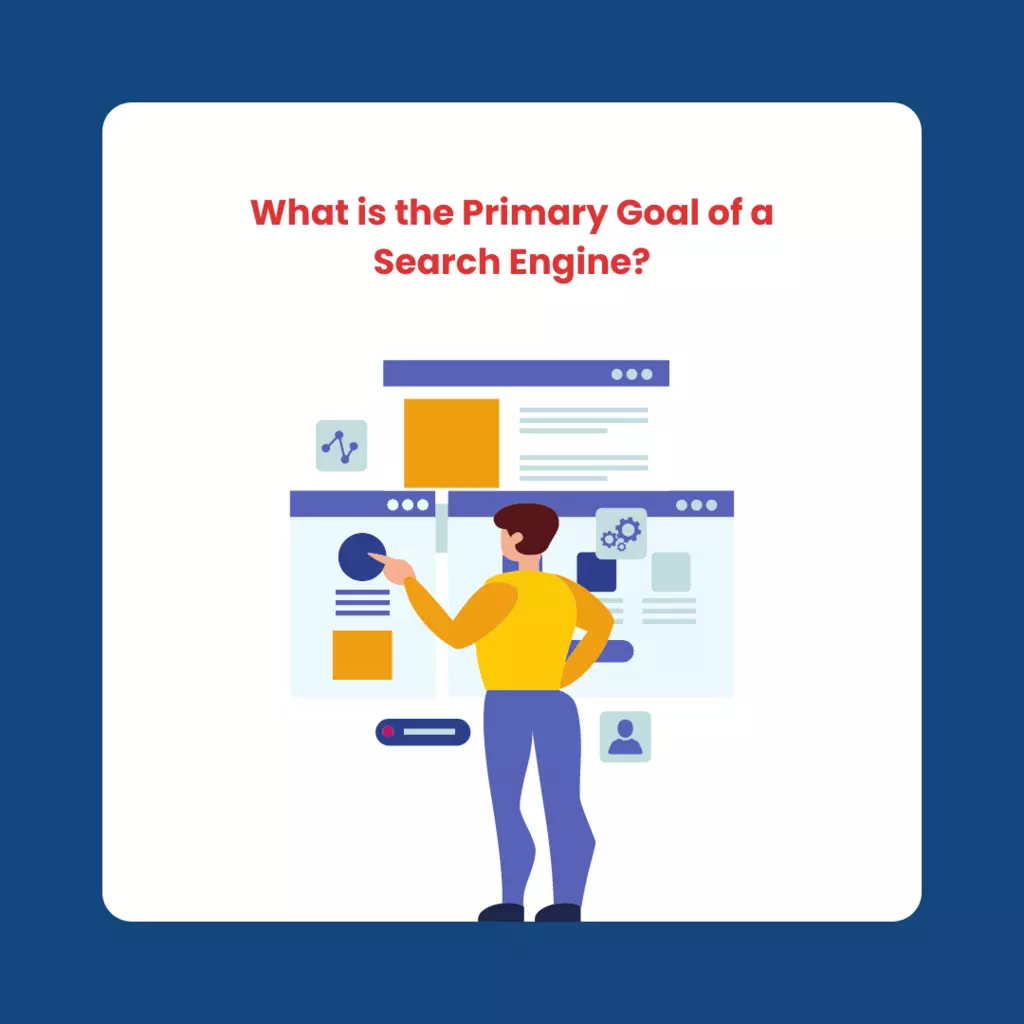If you have ever pondered the purpose of a search engine, you’re not alone.
This article’s goal is to address that question and any others like it that you might have.
We’ll go through what search engines are, why they exist, and what you can do to optimize your site, so it does well in search results.
What is the primary goal of a search engine?

One of the main functions of a search engine is to return relevant and high-quality results in the hopes of answering the user’s query.(1)
On top of that, search engines monitor user engagement with content to improve the overall experience for their visitors.
Search engines give more weight to material that has received several positive user reactions.
The definition of a search engine is provided later in the text, but for now, know that its principal function is to facilitate the discovery of relevant information.
We aim to provide you, the user, with the best material possible.
What is a search engine?

So, having established that its principal function is to facilitate searches, what exactly is a search engine?
In order to provide results to users’ queries, a search engine employs many algorithms.
When a user types in a question like “What is the primary goal of a search engine?” a search engine will employ an algorithm to sift through its extensive database in order to return only the most relevant and reliable results.
The search engine will deliver those results in its quest to provide the user with the most relevant and satisfying search results.
Although each search engine employs a somewhat different algorithm, Google remains dominant. You shouldn’t worry too much about your content’s ranking in the other, smaller search engines if you optimize it for Google.(2)
Why do we need to look?
Thus, there are three goals of searching, each contingent on the searcher’s nature. Whether you’re searching for yourself or through a search engine, your motivations will be different.
You should know why you’re searching.
If you’re the one investigating, you should go into it with an open mind and a desire to learn, develop, and gain insight.
Typically, you’ll use a search engine to locate answers to questions or discover new options for purchasing goods and services.
The purpose of search if the search engine is searching
The reason a search engine performs a search is because of you. Tell me what you’ve been searching for online. As said before, a search engine will look through its database to find the most relevant, high-quality, and speedy response it can base on your query.
Boosting your search engine ranking through reviews

It would be best if you always strived to improve your visitors’ overall experience.
If you give your users the finest experience possible, search engines like Google will reward you.
That is what they hope to accomplish in the end.
Because of this, it is essential to always reply to reviews, no matter what form they take, because doing so demonstrates to search engines that you are concerned about your users’ experiences.
Your rankings will rise, and you’ll get more repeat business from satisfied customers who discover through your comments that you continue to value them even after they’ve made a purchase.
Make sure you’re always on the lookout so you can answer quickly to your evaluations, and you’ll be rewarded.
In what ways do search engines use sitemaps?
There are a lot of ways in which sitemaps aid search engines. A sitemap is a terrific tool to help search engines read, discover, and organize each page of your website.
All of your site’s pages should be easily discoverable by search engines.
A sitemap is necessary for any successful SEO campaign, even if your site’s internal linking structure is solid.
Though search engines have improved to the point where they can find every page on your website, it may take some time for them to see landing pages without links on your website and any new pages you build.
Therefore, sitemaps are a fantastic tool for ensuring search engines pick up on your website changes.
Since search engines foster such intensely competitive conditions for businesses and websites of a similar kind, it is essential to make the most of every tool at your disposal if you hope to rise above the competition in search engine results pages (SERPs).
What do you need to balance when doing SEO?
Finding the right amount of effort in each aspect is essential for optimal SEO results.
When you put your custom SEO plan into action, the following considerations must be considered.
On-Page SEO
Optimizing a website page, or “on-page SEO,” is precisely what it sounds like. Content generation and optimization are the focus of on-page SEO.(3)
Know your keywords, make great content using them, and ensure it follows Google’s SEO guidelines.
Your images should be the right dimensions and include descriptive alt tags.
You’ll need a well-organized HTML file with properly formatted headers, linked subheadings, etc.
If you want to take control of your SEO and learn more about the processes involved, we recommend reading more of our articles, which cover all these topics in detail.
Off-Page SEO
The majority of off-page SEO work focuses on communication.
The term “off-page SEO” refers to reaching out to other website owners to get backlinks, guest posts, excellent local citations, etc.(4)
And this also includes promoting your material.
You can’t expect to rank for anything without promoting the content you developed in On-page SEO.
That’s why you need to publish this material everywhere on blogs, Twitter, Facebook, Instagram, YouTube, etc.
Reputation administration is another aspect of off-page SEO.
When you actively manage your online reputation, you may influence how and where your company or website is discussed.
You expect, for instance, that only true information will be shared.
Off-page SEO necessitates vigilant monitoring of all online mentions of your website, including seemingly insignificant ones like multiple Yelp listings.(5)
Analytics
Spending enough time analyzing your data to get the desired outcomes can be time-consuming, making analytics one of the more complex facets of SEO to strike a balance between.
If one of your blog entries is currently ranking at the top, you may use analytics to see when a competitor has surpassed you and then fight to reclaim the top spot by producing even better content.
Analysis helps you know when it’s time to make adjustments.
The farther you get into your campaign, the more involved the analytics will become.
Without analytics, your SEO strategy will be highly ineffective, yet it is still the most lucrative and beneficial of the three.
We hope this article was helpful to you.
Sources
- Pfromm D. “WHAT IS THE PRIMARY GOAL OF A SEARCH ENGINE” SpirraDigital https://www.spirradigital.com/blog/what-is-the-primary-goal-of-a-search-engine#:~:text=The%20primary%20goal%20of%20a%20search%20engine%20is%20to%20provide,how%20users%20respond%20to%20content
- Lutkevich, B. (2022). “search engine” TechTarget https://www.techtarget.com/whatis/definition/search-engine
- SEJ (2023). “The Complete Guide to On-Page SEO” SearchEngineJournal https://www.searchenginejournal.com/on-page-seo/
- Anderson, T. (2021). “Off-Page SEO: What It Is and How It Can Help Boost Your Online Presence” Bluehost https://www.bluehost.com/blog/off-page-seo-checklist/?psafe_param=1&irpid=101&clickid=P61C101S570N0B5578A2D4499E0000V135&gclid=Cj0KCQjw_r6hBhDdARIsAMIDhV8co1_bjHAkK4h66RYnebCmVxbpuj6opGV4ldjsNAhGOP7DRyaVwewaAm4WEALw_wcB&gclsrc=aw.ds
- Moz “Off-Page SEO” Moz https://moz.com/learn/seo/off-site-seo
- Eggspert, T. (2021). “How to Optimize Your Website for SEO and Conversions” CrazyEgg https://www.crazyegg.com/blog/how-to-optimize-your-website/
- Patil, V. M., & Patil, A. V. (2018). “SEO: On-Page + Off-Page Analysis” IEEE Explore https://ieeexplore.ieee.org/document/8533836














